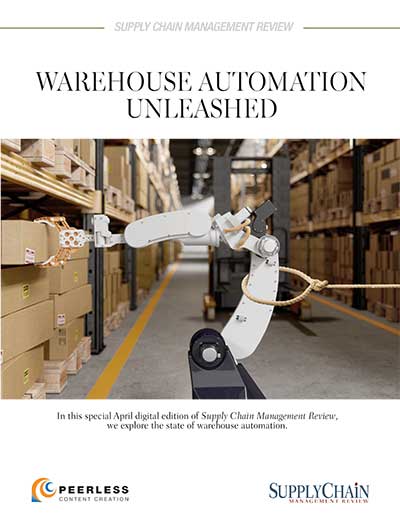Everyone's asking what's going to happen next with supply chains. There's a set of writers—mostly non-experts—bemoaning how terrible our supply chains are and how they have let down not just their customers but humanity.
There is certainly truth to allegations of underfunded pandemic and other preparations. As a nation and even a world we know that unpredictable events such as disease and natural disasters are inevitable, yet we grew complacent.
Yet there's also truth that our supply chains have been extraordinarily adaptable in the face of a disruption on a scale that could never have been planned or prepared for. Most of human history has grouped the “Four Horsemen” for good reason: War, Famine, Pestilence, and Disease are so inextricably intertwined that it is often difficult to tell them apart. Yet this time Disease has ridden alone. The naysayers need to recognize that this time our supply chains and their workers and leaders have succeeded on a scale that is unprecedented in history at keeping the other three Horsemen at bay.
The reason is simple: the right incentives are in place. From the market demand perspective, society pivoted quickly to “work from home” and most of the out-of-work people received money to provide for necessities. Although it takes time to create new channels of distribution, industrial toilet paper and cleaning supplies that used to go to closed restaurants and workplaces eventually found their way to supermarkets to supplement the regular consumer brands.
From the supply perspective, it's a fundamental reality that it takes a lot of workers to make and move products to fulfill society's needs, and those workers need to eat and pay for a roof over their heads too, so putting money in to the hands of consumers paid those worker's wages. And consumer spending was a critical signal to know where and how many workers to allocate.
Incentives are far more powerful than disincentives such as regulations and fines—which of course means that incentives can also lead to undesirable outcomes. Particularly troubling is recent news of the resignation of Amazon software engineer Tim Bray, who was quoted as saying, “Amazon treats the humans in the warehouses as fungible units of pick-and-pack potential.” Allegations against Amazon's treatment of workers go back at least to 2010, and even though the company continues to struggle with slowdowns and other signs of worker discontent, and with injury rates far above the industry average, the allegations indicate that incentives to invest in growth trump incentives to invest in workers.
Is there a higher profile example of the importance of fair dealing with workers? After all, what is a company if not the people that make it up? Our traditional approaches for dealing with disruptions are predicting disruptions, bolstering redundancies, and reacting more quickly, mostly because these are relatively easy to implement at the organizational level with investments in current technologies and processes.
But no reasonable stockpile of masks or contingency plan would have sufficed for COVID-19. If we want supply chains to be even more adaptable to the next major disruption, we need to supplement traditional approaches with policies aimed at the systems level for how organizations interact and adapt—and this depends on matching technological capabilities with human behavior, such as Big Data supplementing game theory to motivate better outcomes.
In other words, it is time we shifted the incentives in supply chain management away from fixing today's priority to creating sustainable, adaptable, and resilient systems for the long run. The next disruption may not treat us so gently.
SC
MR

Latest Supply Chain News
- Tech investments bring revenue increases, survey finds
- Survey reveals strategies for addressing supply chain, logistics labor shortages
- Israel, Ukraine aid package to increase pressure on aerospace and defense supply chains
- How CPG brands can deliver on supplier diversity promises
- How S&OP provides the answer to in-demand products
- More News
Latest Resources

 Explore
Explore
Business Management News
- Survey reveals strategies for addressing supply chain, logistics labor shortages
- How CPG brands can deliver on supplier diversity promises
- How S&OP provides the answer to in-demand products
- AI, virtual reality is bringing experiential learning into the modern age
- Tips for CIOs to overcome technology talent acquisition troubles
- There is still work to do to achieve supply chain stability
- More Business Management
Latest Business Management Resources

Subscribe

Supply Chain Management Review delivers the best industry content.

Editors’ Picks





